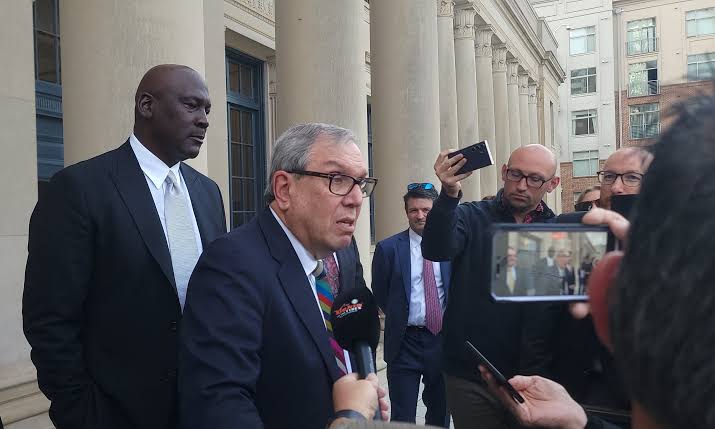
The federal judge overseeing the antitrust lawsuit brought by 23XI Racing and Front Row Motorsports against NASCAR has established key dates leading to a potential trial set for December 1, 2025.
The lawsuit alleges that NASCAR violated federal antitrust laws during two years of negotiations with all 15 Cup Series teams over extending the charter system, which governs the series’ economics and sporting regulations. While 13 teams agreed to the extension, 23XI and Front Row declined to sign.
23XI Racing is co-owned by NASCAR driver Denny Hamlin and sports icon Michael Jordan, while Front Row Motorsports is owned by Bob Jenkins, a restaurant chain operator.
Below are the critical dates and their significance:
Wednesday, January 8, 2025: Hearing on NASCAR’s motion to dismiss the case.
Friday, January 10, 2025: Rule 26 disclosures, where each party must provide initial evidence and information supporting their claims.
Friday, January 31, 2025: Designation of a mediator to oversee potential settlement discussions.
Saturday, March 15, 2025: Deadline to amend the pleadings.
Monday, June 30, 2025: Close of fact discovery, marking the end of evidence-gathering efforts.
Friday, September 19, 2025: Completion of discovery.
Wednesday, September 24, 2025: Filing of the mediation report, summarizing settlement discussions.
Wednesday, October 1, 2025: Submission of dispositive motions to potentially resolve the case before trial.
Monday, December 1, 2025: Trial begins if no settlement or dismissal is reached.
Judge Kenneth D. Bell of the Western District of North Carolina has emphasized the importance of this expedited timeline to allow all parties to prepare for the 2026 NASCAR Cup Series season. He warned that requests for delays will generally be denied unless there is substantial cause or mutual agreement.
The January 2025 hearing will address NASCAR’s motion to dismiss the lawsuit, which argues that the case lacks merit. 23XI and Front Row oppose this motion and have requested an opportunity to present oral arguments before Judge Bell.
Legal Terms Explained:
1. Rule 26 Disclosures: These require parties to share key evidence such as witness lists, documents, damage calculations, and insurance agreements without waiting for formal discovery requests.
2. Mediation: A negotiation process led by a neutral third party, often used to avoid the costs of litigation. If mediation fails, the case proceeds to court.
3. Amendment of Pleadings: Under Rule 15 of the Federal Rules of Civil Procedure, parties can modify their initial claims or defenses to streamline the case and focus on its merits.
4. Fact Discovery: The phase during which parties gather evidence through document requests, interrogatories, and depositions.
5. Mediation Report: A summary of discussions during mediation, including any agreements or unresolved issues.
6. Dispositive Motions: Legal requests asking the court to resolve the case without a trial. Examples include motions to dismiss or for summary judgment.
Standard legal procedures will apply to protect proprietary and confidential information during discovery.




